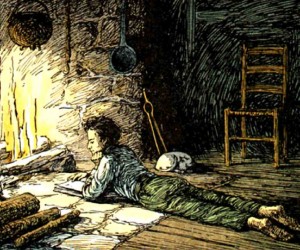 My dear friend and homeschool mentor discusses how she homeschooled through highschool in this post. This was written as a response to a parent who was asking questions about homeschooling her teenage children. She writes from her heart and has a passion for homeschooling… especially the highschool years. I hope you will enjoy this article and find it to be an encouragement and motivation to continue your homeschool journey througout your child’s teen years. I’m so looking forward to mentoring my boys through these years and tackling some very interesting subjects together as a family. Many Blessings, Anne
My dear friend and homeschool mentor discusses how she homeschooled through highschool in this post. This was written as a response to a parent who was asking questions about homeschooling her teenage children. She writes from her heart and has a passion for homeschooling… especially the highschool years. I hope you will enjoy this article and find it to be an encouragement and motivation to continue your homeschool journey througout your child’s teen years. I’m so looking forward to mentoring my boys through these years and tackling some very interesting subjects together as a family. Many Blessings, Anne
I love home schooling high school. What I have to share is long, but I sincerely hope it will be helpful info as you make decisions for your family. There is so much to talk about on this subject.
I have been homeschooling for 15 years, and have graduated one son, who is now 19 and attending our junior college, with plans to transfer to a local university to finish his accounting degree. ( I also have 2 younger ones, coming up behind him.) What an incredible journey it has been… this homeschooling high school. I remember how intimidating it was, as I stood on that threshold, right where you are now. But God is so faithful, and He will guide you each step, as you continue to be faithful to His calling on your life to home educate and disciple your children, all the way to the finish line. This season of high school is the harvest season for all the time we have devoted to the basics. At the same time, I believe it is a very important time of discipleship and a most rewarding time as a parent. It will set the stage for your relationship with that child, as a young adult.
A few points, and then I will share some curriculum ideas. I am no expert, and the Lord may lead your family in a different direction. But I will humbly share what the Lord has taught us over these years, and some of the things we learned and observed. The position you take on certain matters may look different than ours, but still it is helpful to examine them ahead of time, decide what is important to you, and plan your steps carefully as a family, rather than look back with regret at poor decisions, or find you were unknowingly sucked into situations that were not edifying for your children. The curriculum choices can be confusing, and there are lots of decisions to make. But just as important to the success of home schooling high school, as the curriculum and resources, are some other choices we make during those teen years.
It is helpful to reevaluate our goals for our young adult children, because those goals will steer your ship. College options seem to be the first thing that come to mind when we think about high school. Certainly this is a factor, and personally, I would recommend record keeping and curriculum choices that prepare our students for this option. But for us, college entrance was not our main goal. If my student got accepted to the best college, but wasn’t living for the Lord or in a right relationship with Him or us, my heart would be broken. So, our game plan was to pray and discuss what we DIDN’T want to see happen in our teen’s life, and then we worked proactively to avoid activities and situations that would put our goals at risk. At the same time, we chose curriculum that would be considered “college prep”, but sometimes a little out of the box. For us, it was a good combination.
Academic preparation for college is one factor. But we have found that that pales in light of the cultural warfare our young adults will face on most college campuses. Even most colleges with a religious affiliation do not teach from a fundamental Christian worldview. Most science departments teach evolution, and most classes incorporate some form of liberal politics and secular humanism and/or evolution, no matter how benign the course title is (geography, English, etc.). Keeping that in mind is helpful when choosing resources for high school.
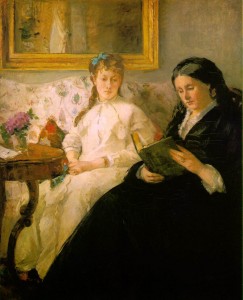 There are several good resources for us as parents. Family Driven Faith, by Voddie Baucham is a good resource. Barb Shelton’s book, High School Formula is a little wordy (like me: ) ), but she has a lot of good ideas for high school. For practical, academic prep for college, record keeping, etc. CBD sells several High School Handbooks for homeschoolers. They all contain much of the same info., so any of them will be useful.
There are several good resources for us as parents. Family Driven Faith, by Voddie Baucham is a good resource. Barb Shelton’s book, High School Formula is a little wordy (like me: ) ), but she has a lot of good ideas for high school. For practical, academic prep for college, record keeping, etc. CBD sells several High School Handbooks for homeschoolers. They all contain much of the same info., so any of them will be useful.
So, on to issues of the heart… The examples I share are not meant as the only “right” way to tackle these subjects. I know and love many families who have chosen a different path for their teens and their families, some with good outcomes and others with devastating outcomes. There is no magic formula or recipe for guaranteed success with our kids. But with God’s word as our guide, we can make some decisions that are counter-culture, and do our part as gatekeepers and protectors of our children’s faith.
I have watched as MANY homeschoolers in my circle of friends and acquaintances have lost the heart of their teens. Sometimes, there is no rhyme or reason for this. But more often, it is linked almost directly to outside influences that could have been avoided. For some reason, many seem to think that the most important thing for their teen, is to have lots of friends, and activities and maybe a job, etc. But I would disagree with those ideas. Our teens do have needs, but those needs can and should be met by the family. I’ll be honest… it was a lot of work, and took up a lot of our time, but it was so worth it.
Let me give a few examples. We chose to avoid youth groups, AWANA, youth camps, and such, because we did not want him to develop friendships that would capture his heart, not to mention that we believe the KEY to parenting teens is supervision, supervision, supervision… by us. : ) All of the youth programs look like worthy activities, but they separate that teen out from his/her family, and foster peer relationships, rather than family relationships. Before long, those teens are often thinking of the parents as intruders, instead of partners, and often they are led down a path that they would never have chosen on their own, by those “friends” . It’s the classic wrong crowd situation, and that wrong crowd can be found at church or a place of employment ( like fast food restaurants, etc.)
As an alternative, we worked tirelessly to provide activities that gave the “illusion” of friends. : )
We met once a month with other teens and a parent, and enjoyed different activities, like game night, volleyball, etc.
I also started a High School Book Club, inviting families with homeschool high schoolers to join us. I wanted to mention that I so appreciate your heart for doing as much as you can that includes your 6th grade child as well. At the same time, as the maturity gap widens with our children, some topics and discussions are important to have with those older children, but just not quite appropriate for our younger ones. You will have to navigate that for your kids, but that is why I limited our Book Club to high schoolers. And again, at least one parent was expected to attend.
We also did high school science (Apologia) together with other families, which provided an academically motivating environment, and again fostered friendships with other home schooled teens. We always provided yummy snacks and some free time at the end, which contributed to the social aspects of the activity. The group started with Physical Science, and ended with Physics, so pretty much the same group of homeschoolers studied together for 4 years. Iron sharpening iron.
We wanted to give our teen a full schedule, with little down time to feel isolated or bored. We felt it was important for him to identify with other home school high schoolers, rather than feeling “different”, because his circle of associations were public school kids. One thing we often saw, was that as teens developed friendships with public school kids at church youth groups or a workplace, they became discontent with home schooling. Even if they are basically “nice” kids, most public school teens are living a very different lifestyle than we envisioned for our family. Even most churches encourage this lifestyle, imitating the public school model. (But that is another discussion. : ) ) Many teens are often independent of their parents and siblings in most activities, which means they are outside of their parents’ influence for most of their teen years. We wanted something different, and we wanted to keep our teen’s heart on board, and wanted him to be content with home schooling high school. Avoiding situations that fostered friendships with public school teens, played a large role in accomplishing this.
We didn’t allow our teen to work in a typical job environment. We felt that would open a door to relationships that might be a poor influence on him, and might make the youth culture more appealing, again, fostering a discontent with our choices. The risk was not worth the small paycheck. However, we did have him make up a flyer, and offer his services in our neighborhood to mow lawns, and do animal care. Both of these “jobs” grew to be plenty of work for his limited schedule throughout high school. For a daughter, babysitting or animal care is another needed service. The point is that he was able to earn some money, learn a good work ethic, grow in responsibility, yet avoid the pitfalls of those unsupervised relationships that often develop in a typical work environment. 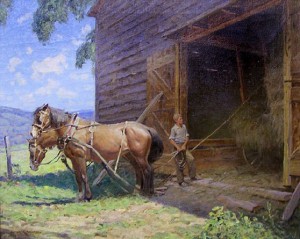
One other big effort we made was in recreation. My son enjoyed sports, and needed the physical outlet that athletics provided. He played soccer as a younger boy, but when he hit 9th grade, we didn’t want to do the school soccer team. Same situation… contentment and/or peer influence were risks not worth taking. We decided to put him in tennis lessons ( a bit of a stretch for our meager single income, but sooo worth it!). Tennis turned out to be a saving grace for us during those high school years. In addition to the other activities I mentioned, tennis filled up a lot of time. It was a good investment of time and money.
On weekends, we scheduled family game nights, which again, committed his time to home. As he got older ( like 17 -18), he would turn down invitations saying, “ Oh, I can’t do such and such Sat. night, because we have game night at our house.”. Game nights provide a lot of laughter and conversation with those teens, and can include younger siblings. : )
As his sleep pattern changed, I stayed up later as well, to provide company and cook late night snacks, as well as supervision ( the TV and computer can be a temptation to a lonely or bored teen.) His few friends were always welcome, late into the night, or even to crash overnight. They always felt welcome, and I found that “If you feed them, they will come!”. : ) On weekends, my husband took a shift, and watched an a movie or played acceptable computer games, so my son seldom felt the need to seek outside relationships. Instead, he sometimes invited those same few friends to join him at home… where there was plenty of food, Mountain Dew, a ping pong table, computer games, etc., all under our watchful eyes and ears. Supervision. : )
Driving alone wasn’t an option until just before turning 18. It was tempting, but once that teen is driving, it opens a world of opportunity and freedom… we didn’t want that door opened at 16 years old. Again, it eats up a gob of time and energy to play chauffeur, but it provides the needed supervision and accountability, and also gives lots of time to chat and stay close to those teens. : )
Cell phones and texting, and face book, etc. .. all open the door to unsupervised friendships developing with our kids. I won’t say a lot here, but I am amazed at the bad influence that come from these activities, and I really think we as parents need to be gatekeepers and guard this stuff.
These are just a few ideas and examples of how we attempted to make home and family the center of our teen’s life. He is not perfect, and neither are we, by a long way! Our relationship still has it’s bumps, etc. But as we looked at the issues facing families, and examined the source of a lot of the trouble, it seemed to all come back to abdicating our role as parents, and farming out our kid to others (youth pastors, AWANA leaders, charter school teachers, etc.) to fill most of their emotional, social and spiritual needs. I believe that God has equipped families to do most of that for each other.
Below are a few curriculum resources that I and others around me, have found very helpful for high school. As I considered curriculum, I was looking for a few criteria. I wanted resources that would prepare my student for college/adult level thinking. College admissions is a factor, and a college handbook from CBD will help you be sure you are meeting that criteria. That was the easy part. But even if our child did not go on to college, we wanted to equip him with the tools to effectively combat the culture, to read and write well, and to look at every issue through the lens of God’s Word. So, to prepare for college, or not, teaching Christian Worldview became the priority for us. Even with all the effort we put in to doing that, we still find that he is challenged in college, and we are continuing to revisit some of our old dvds and watching new ones on anti-evolution topics, and the founding fathers, etc. The attack of the enemy never ends, and we find that our children are pretty instantly engaged in cultural warfare the minute they step into the college arena. Their Christian faith is under attack and all they have been taught is scoffed at. Scary stuff.
Most all of these teach and/or support a strong Christian worldview. Also, they are all teacher friendly, and you don’t have to be an expert yourself to teach the material. Great teacher guides, or the course is actually taught by the dvd. I like that. : )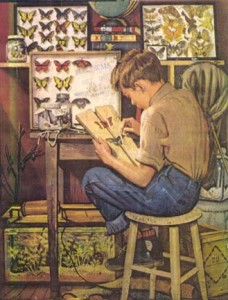
HISTORY… Diana Waring’s Ancient History is excellent, and can be used for multi ages. Includes commentary on Biblical role in history and a ton of very interesting information. We didn’t do all the extra activities ( cooking, drama, .. It just wasn’t his thing), but we read and read. Very interesting reading. She also has audio cds that are great to listen to, especially in the car. CBD sells her materials.
American Heritage by David Barton of Wall Builders is an excellent dvd series. Anything by Barton or Wall Builders is really good. Drive Through History dvds are entertaining but filled with great info.
I would check out from the library ( or sometimes buy from Amazon) an old movie that went along with what we were studying. For instance, we watched Luther when we were studying the Reformation. Teens often like movies, so adding dvds to our curriculum helped keep his interest. ( Most current movies had unacceptable content, so we tended to stick to the oldies. But there were a few more modern that were good and clean.)
GOVERNMENT… Institute on the Constitution, by Dr. John Eidsmoe. This is a dvd course. We went in with several other families, and split the cost, which made it very affordable. We met for 6 weeks, doubling the lessons, and earned our government credit ( usually done in 11th or 12th grade.) You could meet for 12 weeks if you wanted to. This is an excellent government course, and we later watched it again. It is loaded in great info.
Prior to doing this course, we read through Land of Fair Play, by Christian Liberty Press. This is a middle school Civics course, but honestly, it is appropriate for most high schoolers and adults. It does a great job of describing our government in layman’s terms, and familiarizing us with the terminology, and concepts, etc., before diving into the more academic constitution course.
LITERATURE… American Literature by Dr. James Stobaugh is a great, formal, Christian literature course. It is a little too writing intensive for us ( not our strong point… son is a reluctant writer to this day.). So, I limited the writing assignments, and focused mainly on the excellent commentaries and text. Also, I pulled in a movie, based on the book excerpts being discussed, every chance I could. : )
BOOK CLUB… this turned out to be a highlight of our high school years. I too had issues with many of the “classics”. The Lord guided us, and as a result, we read some excellent books, and explored great topics, like forgiveness vs. revenge, hope, slavery, freedom, comedy, and much more. (email for more details if you are interested.)
By tracking our meeting and reading hours, we had no problem including this course on our transcripts as literature credit. And our book list was taken selectively from college recommended lists. Again, email me if you would like a list of what we covered.
Total Language plus is a good resource as well, for exploring literature. If you come up with your own book list, and Total Lang. doesn’t have a guide for a certain book, you can usually google the title, and get spark notes on it, to use as you choose.
FOREIGN LANGUAGE… We used Bob Jones HomeSat Spanish course. The HomeSat program is gone now, but I think they sell each subject on dvd. For college purposes, you could use 2 years of the language of your choice. Other considerations are American Sign Language as a foreign language.
SCIENCE/WORLDVIEW/APOLOGETICS… Now this is what I call COLLEGE PREP! : ) LIFE PREP, actually! : ) …
I would use lots of resources by Ken Ham and Answers in Genesis… again great for all ages. Answers in Genesis is devoted to taking on the evolution religion being taught in our schools, K – college. There are curriculum resources, dvds, a website. I would saturate our teens in the truth of Biblical creation, and also use these materials to expose Darwin’s false teachings. If you go to their website, they have tons of dvds. Makes the learning painless. : )
Thinking Like A Christian… also a good Worldview course designed for older teens. I like this because it is written out, word for word, for the teacher.
Many of these resources are carried and sold by CBD, but I would also check for used items at www.homeschoolclassifieds.com or hslda’s marketplace (go to their website, and follow the link), or at www.amazon.com and look at the used items for each title. Finally, HSLDA has a monthly email newsletter for home schooling high school, which is encouraging as well as practical.
Just one more note… the Lord provided the inspiration, motivation and resources to teach our high schoolers outside of the public school/charter school option. Often, we think we can’t do it without the school’s help, but we can. : )
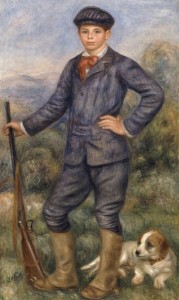 I don’t want to give the impression that the things we chose to do or use were perfect or sacred. They weren’t. But the Lord was so wonderfully faithful to direct our steps, and reveal His plan for us, along the way. He may lead you in a different direction, depending on His plans for your family or your growing child. So the heart of my message would be… be faithful to our calling to home disciple our children, all the way through, and the Lord will be faithful to us and will direct our paths as He completes His work in us and our kids. : )
I don’t want to give the impression that the things we chose to do or use were perfect or sacred. They weren’t. But the Lord was so wonderfully faithful to direct our steps, and reveal His plan for us, along the way. He may lead you in a different direction, depending on His plans for your family or your growing child. So the heart of my message would be… be faithful to our calling to home disciple our children, all the way through, and the Lord will be faithful to us and will direct our paths as He completes His work in us and our kids. : )
I have many friends and acquaintances who also homeschooled their children through graduation, and I am often so impressed by how the Lord directed their steps, and tailored their education to suit their specific family needs. It didn’t always look just like our homeschool course, but it was the right fit for each family. He is just so awesome.
I am always happy to share what we used and what worked well for us, knowing that I am not suggesting it is the only way, but maybe it will give others some direction, as they seek the Lord.
I mentioned some of my favorite resources for high school in my previous post. A few things I left out, were World Magazine and watching FOX News with your older teen. Regarding FOX news, I found that we had to be somewhat guarded, because occasionally FOX will report on some inappropriate “hollywood” behavior or story. But for the most part, Hannity, Glenn Beck, Greta Van Sustren, Special Report… these news programs are often a history lesson from a Christian perspective, and for sure they provide an opportunity to dialog with your teen on current political events, and to impart your views and concerns and worldview on political and social issues. For us, it was a time of exposure to some of the issues of life that we avoid in entertainment (movies, tv, etc.), yet we decided to deal with these issues as they arise in the news. And World magazine is a little expensive, but we found it to be a great resource as well.
The Book Club idea was formed with a friend. We wanted to do something together with our high schoolers, and we both had some concerns about many of the popular book lists. We both had reluctant readers, and found they just weren’t getting through the reading list we were assigning them in our homes. We felt that a bi-weekly Book Club would give accountability to them and us, and would help accomplish our reading goals. So we met for lunch with pens and notebooks, and came up with a plan. We made a list of our own favorite books and ones we wanted our high schoolers to read ( we mainly used the SAT Prep for Christian Schools, by James Stobaugh, and Sonlight catalolg as our reference book).
At the time, the choices felt a little random, but in hindsight, we saw how the Lord had orchestrated each book choice, in order to provide very worthy exploration and discussion with our kids, as well as get some good reading in! : )
We had 2 other families participate, and we had a total of 6 kids and 4 moms. The 2 extra moms attended, but my friend and I planned and led the meetings. We met every other week at the library. ( Most libraries will let you reserve a meeting or conference room, or you could meet at a home or church.) We decided that it was for high schoolers only, since even though we were careful in our book selections, still some had mature themes (revenge, betrayal, suffering, etc.). We, the moms, also read the assigned book, so we were prepared for discussion. And we would take notes throughout our reading, of points we wanted to discuss or topics that we felt needed to be explored, etc. In addition, we went to www.sparknotes.com and printed off activities for most of the books ( discussion questions, comprehension questions, vocab lists, and any other resource that seemed interesting. Finally, we would do a little research on the internet on anything related, that seemed interesting to us. It sounds like a lot of work, but it really wasn’t. With the internet, the prep work went pretty quickly. Some moms bought the books, but I either had them on my shelf, or checked them out from the library.
Here is the list of books we tackled in our last year…
~ The Hiding Place – We examined the subject of suffering and explored some of the history surrounding the Holocaust, with a focus on Forgiveness.) This was a sobering yet wonderful book.
~ The Count of Monte Cristo – I’ll be honest… this was one of my favorite books as a college student, so I wanted to read this. We chose the unabridged, 1200 page version, and we took an entire month to read it, instead of just the 2 weeks. As a parent, I saw the story somewhat differently than I did as a romantic 19 year old college student. It is a sad story really, yet still I would consider it a favorite, and so did many of the kids. It has action, and suspense… a complicated story line. It is well written, and leaves no loose strings in the end. But as Christians, we were very aware of the theme of revenge running through the story. What a contrast to Corrie Ten Boom’s reaction to persecution in The Hiding Place… and the only difference was Jesus. Well, I can’t begin to tell you of the deep discussions we had on forgivenss, resentment, happiness, etc. It was just what we needed to read, after reading our first selection, but we didn’t even fully realize that going into it. But the Lord knew. : ) We watched the movie afterwards ( both the 1970’s version {which I bought for $2 on Amazon.com), and the newer version, which we rented.
~ Farenheit 451 – This was my friend’s pick. I am not too keen on science fiction. But this book turned out to be a great read. There is a little mild language ( I think… can’t remember for sure). The book was written in the mid 1950’s, and it was prophetic in many ways… eerie actually. For our discussion time, we did some questions on the general plot, etc. like we always did, and then we talked about where the title came from ( the degrees at which paper burns, if I remember correctly). And then we talked about censorship and government and… well as always, the Lord directed our conversation, and we all grew from this read.
~ The Screwtape Letters – We agreed that we wanted to read something from C.S. Lewis, so this was our pick. I had always been creeped out by this book, but this time around, I found it interesting and it was a good source of discussion on the Christian’s life.
~ Twelfth Night – We also wanted to read Shakespeare, so we chose this because it is short and a comedy. We checked out the book from the library that had the original Shakespeare language on one side, and a modern passage on the opposite page. This made it so much easier to follow the story. We spent a little time discussing Shakespeare himself, and then we rented the movie ( made in the 1990’s, I think), and it was very funny and we enjoyed it a lot. And I think all the kids felt somewhat accomplished that they had read and studied a little Shakespeare! : ) (Note: Shakespeare could also be studied in much more depth, in a separte english lit. course).
~ The Cross and the Switchblade – We were going to read West Side Story, and then watch the movie. But since neither of us had previously read the book ( which was a requirement that we had agreed to… part of that gatekeeper mentality), we started reading it ahead of assigning it. Well, we were so glad we did that, because unlike the rather innocent movie version of the 1960’s, the book had inappropriate material within the first few chapters. As we decided to scrap that title, I thought about this book, that also explored gang life, but from the perspective of a Christian testimony. This book has mature content, and deals with the reality of life on the streets as a drug addict and gang member. It is the true story of David Wilkerson, and how God led him into a ministry for street gangs, and follows his relationship with Niki Cruz, who receives Christ and had his life changed. For most of our kids, they will never know of the suffering and pain that these street kids endured. This story gave them a glimpse into some of the horrific situations that God saves people out of, and really drove home the message of “he who is forgiven much, loves much”.
~ Uncle Tom’s Cabin – Another great book. This book allows the reader to feel the injustice of racism and slavery, and fosters a compassion for what the African-American people endured during those times. Again, the Lord used this topic to open deep discussions with our kids, and it was a very worthy read.
Finally, a few other books that we did as a family, but would have done with our Book Club if we had the time, deal with worldview, and apologetics: More Than a Carpenter, by Josh McDowell, Know Why You Believe, Know What you Believe, both by Paul Little, and Do Hard Things by the Harris twins.
And these titles we didn’t want to do in a mixed group, due to the personal content, but they are good sources for family discussion: I Kissed Dating Goodbye, and Passion & Purity, by Elisabeth Elliot.
Sonlight catalog, CBD, Veritas Press… these and many other catalogs are a great resource for choosing books. Read through them, deciding by the synopsis which sound the most worthy or appealing to you or your students, and make a list. The time is short, and I don’t think we will ever feel that our kids read every book we intended them to finish. There are lots of good stories, but ask the Lord to lead you to titles that will leave His mark on the heart of your children.
I don’t think there is a “right” order to teach history. I guess that decision can be made using several influences… like what you’ve spent time studying in the past, your children’s interest, maybe an area you feel passionate about, etc. I didn’t really have a schedule… I worked through history the same way I scrapbook… chronologically. : ) But that isn’t necessary. You really can study any time period that interests you, or that you feel is important to spend time on.
We also read lots of historical fiction or biography books along our history timeline, and watched movies (usually older ones), that went with the timeline or that were made from the books we read.
A few titles that we pulled in:
G. A. Henty books or books on tape for ancienct Egypt and Roman times, etc. (check out Henty titles)
Titles from Sonlight and Veritas Press catalog history sections that worked with our timeline.
Three Muskateers
Mutiny on the Bounty ( book and old Clark Gable movie)
Man in the Iron Mask
Gone with the Wind ( movie only)
Robin Hood ( old movie with Errol Flynn)
Westerns and War movies ( older movies – some John Wayne, etc. )
These are just a few ideas. We loved that we could make some popcorn, have a movie night, and it was part of school! : )
A few options come to mind for your family… you mentioned you wanted to teach your children together, so if that is still a goal, you will probably have to have a little family pow-wow, and agree on what to cover, when. If you go chronologically, you can do Diana Waring’s Ancients for the next year or so, then spend some time on David Barton’s American History, then do the Constitution course for a government credit. And when you do the Ancients, it is good time to once again reinforce creation vs. evolution, which brings in your worldview studies, from AIG, etc.
If you don’t mind splitting the kids up, you could let your son watch David Barton’s history dvds, and then watch the Institute on the Constitution dvds, and he would get a pretty good coverage of American History. You could also follow along in a good textbook, like a Bob Jones or Abeka American History (high school level), for some deeper reading on the different subjects addressed in the dvds. We did all of the above, as well as watched the American History class from Bob Jones HomeSat. HomeSat is gone now, but I think they sell the dvds for individual classes… not sure about that. We didn’t do the tests, and all the chapter questions, etc. We just read from the text, which was interesting, wrote a few papers, and watched the dvd class, which was good too, then did David Barton dvds along the way, and the constitution dvd. It made for an interesting American History course, and I think it was quite thorough. There are many excellent history resources you could include.
While son is doing that, you could work through the Ancients with your daughter. Depending on their interests a few years down the road, they could switch materials. By that time, your younger student will be ready to study these subjects right along with them.
One thing we find is that if a student is allowed to study what interests them, they are much more motivated and seem to retain the info better, so I can’t help but lean towards finding a way to let them follow their heart. If they weren’t showing any particular passion for a time period, then it would pretty much be up to what works best for you ( and that still may be what determines the schedule, in the end!). : ) But it is rather nice that they at least show an interest in something, instead of not caring at all. That is a blessing.
For subjects like foreign lang., I would just start, and continue on for at least 2 years worth. It might take a little longer than one year to complete each level, but if you start in 9th grade, you have plenty of time to fit in both “Spanish 1 and 2” or whatever language you choose.
For a fine art study, you have choices as well. If your children study or play an instrument, then you already have that covered for the most part, with music. There are programs out there, to study the composers, and with Youtube, you can search for about any piece of music, and listen to it online. You could also incorporate a study of hymns … such rich doctrine.
But for art, you can bring in a program like Meet The Masters (level C, I think is for ages 10- adult?). This is an enjoyable art appreciation program that can be done together, and takes no artistic skill from the teaching parent. There are several packages, so you can study as much as you want to.
Home Ec. …. personally, I would follow the bents of my children, while bringing them along side mom or dad, to learn how to be a grown up. And if you track time spent on projects, you can easily give home ec. credit.
 There is a program by homeschoolers called Keepers of the Faith (www.keepersofthefaith.com ) that is kind of like a Christian boy/girl scouts. It says it is for ages 7 – 16 or 17, I think. It is filled with gobs of ideas for learning skills in many areas of life, including creative, sporty, spiritual, service projects, academic, etc. I think it is a great tool, even if you don’t do a formal club with other families. We have done it both ways… in a group (which my kids loved!), or just our family, which they still liked. The club version kept us both accountable to get it done, but we did fine alone as well. The areas of study cover a wide skill and ability range, so there is plenty for a high schooler to work on, at their level. The girl’s version is Keepers of the Home, and the boy’s version is Contenders of the Faith. You would probably want to get them each their own book, since it is sort of gender appropriate. Check out the website to see if any of the topics would interest your children. Your younger student can participate in the Keepers/Contenders projects too.
There is a program by homeschoolers called Keepers of the Faith (www.keepersofthefaith.com ) that is kind of like a Christian boy/girl scouts. It says it is for ages 7 – 16 or 17, I think. It is filled with gobs of ideas for learning skills in many areas of life, including creative, sporty, spiritual, service projects, academic, etc. I think it is a great tool, even if you don’t do a formal club with other families. We have done it both ways… in a group (which my kids loved!), or just our family, which they still liked. The club version kept us both accountable to get it done, but we did fine alone as well. The areas of study cover a wide skill and ability range, so there is plenty for a high schooler to work on, at their level. The girl’s version is Keepers of the Home, and the boy’s version is Contenders of the Faith. You would probably want to get them each their own book, since it is sort of gender appropriate. Check out the website to see if any of the topics would interest your children. Your younger student can participate in the Keepers/Contenders projects too.
Think about what your and your husband’s gifts are… any crafting skills or pastimes you want to pass on to your daughter? Sewing? Needlework? Cooking? Scrapbooking? Gardening? Bring her along side you in the home, to learn to run a household. My girls are still young ( 8 and 10), so they are a little limited in their skills. But when my son was in high school, my husband worked alot. Even so, my husband taught him the basics of car maintenance, lawn care, basic household fixing things, how to handle a gun ( they took a gun safety class together first). They would target practice at a shooting range or clay shoot on acreage in the country. They worked out together regularly ( first at home, then later at a gym). Hubbie taught son archery and we bought a big stuffed target, and they had a lot of fun shooting with bows and arrows. ( My 10 yo daughter enjoys this now!).
I had him sit with me to do the bills… teach him to look at a bill, figure out what they are charging you for, write a check (I would sign it), and get it in the mail. I taught him to do his own laundry, use an ATM card, pump gas for me, etc. For our girls, I have such a burden to help them embrace their calling as keepers of their homes, and to protect their heart from being lured into the work force ( like mine was). So, almost anything we study, I try to bring it back to how God can use that information or skill in their lives, as wives and homeschool mommies someday! I am purposefully trying to foster in them skills and interests that I think could be useful to a stay-at-home-mom, either as a ministry, or as a source of income from home, or as a resource to homeschool families someday… piano study ( piano teacher in her home someday?), sewing (seamstress business from home?), sign language (interpreter, homeschool classes?). That is just personally where my head is at. : )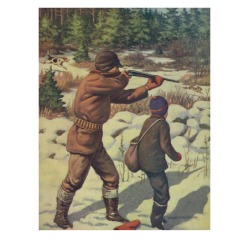
Anyway, just looking at the everyday responsibilities of life that we tackle each day, and helping them become confident in those skills, will allow for plenty of home ec. credit hours.
I used and loved a record keeping book from NARHS, (North Atlantic Regional High School) called a Daily Log. For high school, my son basically just tracked his day. And I used a regular calendar to organize our lives, which also was useful for accounting for our time. This made sure we were accounting for all the activities that “count” as school, even though they are out of the box. I found that most of our time was spent in a worthy manner, so I wanted him (and me!) to get credit for what we had accomplished. If you prepare a transcript for college, this log will be very helpful. If you end up not needing transcripts for college admissions, it is still a great portfolio of the high school years.
You can order it online or on the phone. Their website is www.narhs.org/taxonomy/term/6 . NARHS is a distance learning option to receive an accredited high school diploma. You keep all the records, by their standards, and they award a diploma. Personally, I didn’t want the accred. diploma program they offer. But I found most of their record keeping books to be so helpful. Again, the Daily Log was a great tool, and they have other forms and books as well. There are a lot of handy planners out there. I didn’t use the Daily Log for my lesson planning, but rather to track what we actually did.
Hope this is helpful!
Blessings,
~ Lynn : )